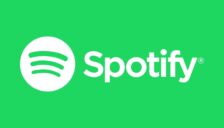Brett Martin, writing for the New York Times:
Largely, though not entirely, on the strength of such songs, Farley has managed to achieve that most elusive of goals: a decent living creating music. In 2008, his search-engine optimization project took in $3,000; four years later, it had grown to $24,000. The introduction of Alexa and her voice-activated sistren opened up the theretofore underserved nontyping market, in particular the kind fond of shouting things like “Poop in my fingernails!” at the computer. “Poop in My Fingernails,” by the Toilet Bowl Cleaners, currently has over 4.4 million streams on Spotify alone. To date, that “band,” and the Odd Man Who Sings About Poop, Puke and Pee, have collectively brought in approximately $469,000 from various platforms. They are by far Farley’s biggest earners, but not the only ones: Papa Razzi and the Photogs has earned $41,000; the Best Birthday Song Band Ever, $38,000; the Guy Who Sings Your Name Over and Over, $80,000. Dozens of others have taken in two, three or four digits: the New Orleans Sports Band, the Chicago Sports Band, the Singing Film Critic, the Great Weather Song Person, the Paranormal Song Warrior, the Motern Media Holiday Singers, who perform 70 versions of “We Wish You a Merry Christmas,” substituting contemporary foods for figgy pudding. It adds up. Farley quit his day job in 2017.





